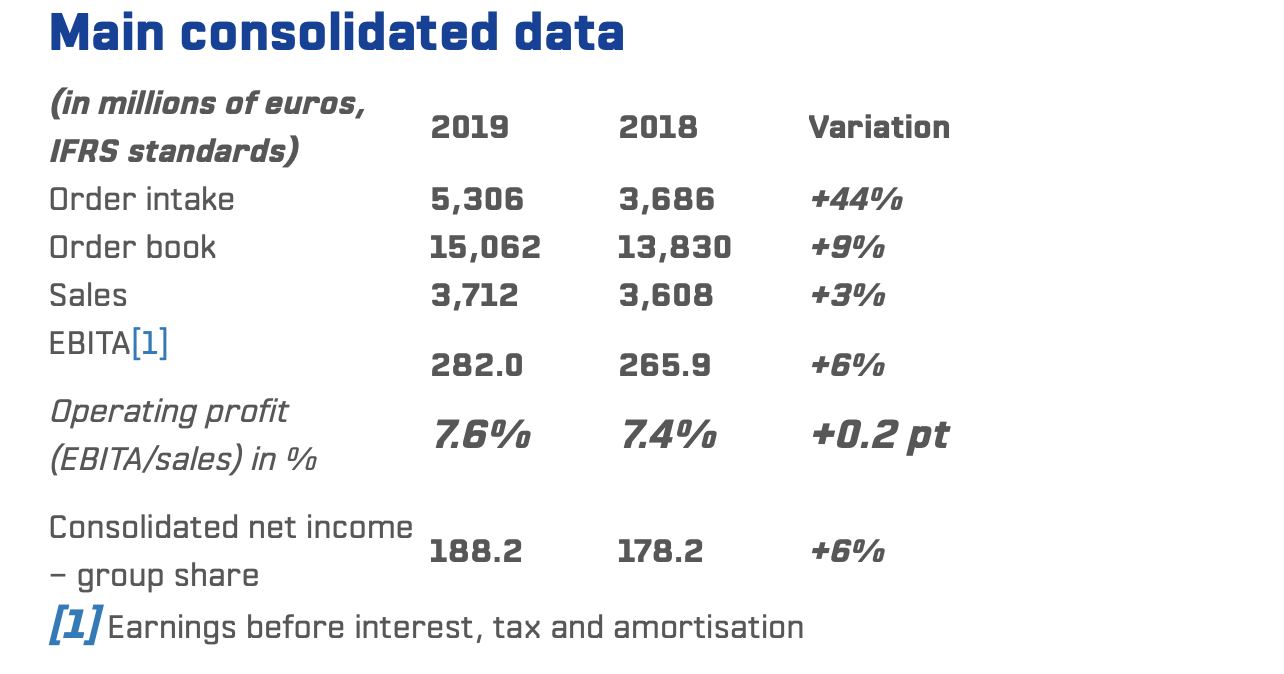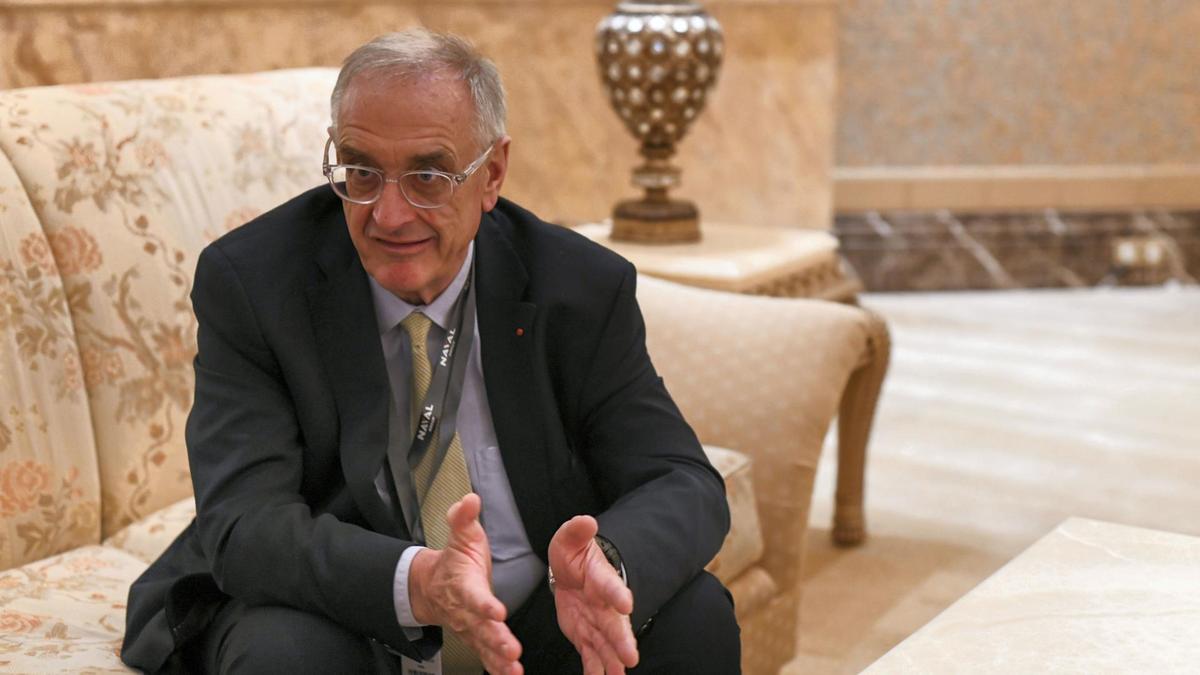By Pierre Tran
Paris
NG reported a six percent rise in 2019 net attributable profit to €188 million ($204 million) from a year ago, on sales of €3.7 billion, up three percent.
Operating profit rose six percent to €282 million, with an operating profit margin of 7.6 percent of sales, up 0.2 percentage points.
The company won orders worth €5.3 billion, up 44 percent, bringing the order book to €15 billion, up nine percent.
The orders were boosted by a joint order for 12 minehunters from Belgium and the Netherlands. NG seeks a sale of the minehunters to France.
The book-to-bill ratio, or ratio of orders to sales, was 1.4.
NG has €1.2 billion in shareholders equity, and invested €480 million of own funds for research and development.
Export deals accounted for 38 percent of 2019 orders, and accounted for 29 percent of sales.
Those exports are needed to maintain NG between domestic orders for warships, submarines and service, said Hervé Guillou, executive chairman of the French shipbuilder, who gave a broad review of the company’s financial progress, programs, and employees over the last five years, a period covering the period of his stewardship.
One of the financial oddities was France covering the cost of building two Mistral helicopter carriers for Russia but only after NG’s pursuit of the finance ministry for payment, after Paris cancelled the controversial sale to Moscow.

However, the company was unable to recover an estimated €100 million of profit from the ministry, an executive said.
Egypt, which later bought those helicopter carriers, is considering buying two multimission frigates from Italy, in a €1.2 billion deal which would thwart DN’s offer of two Gowind corvettes, website La Tribune has reported.
Cairo’s reported preference for a warship deal with Rome stems from French president Emmanuel Macron’s call for human rights during a visit to Egypt last year.
DN continues its sales effort to Egypt, until a sale to Italy is completed, a second executive said.
And Guillou addressed the issue of Naval Group’s Australian engagement as well.
Naval Group is looking for strong local participation in Australia’s plans to build a fleet of attack submarines, contrary to Australian media reports, Hervé Guillou, said Feb. 21 at the Press Conference.
Australian media reports on NG’s lack of support for local industry were “groundless” and marked by “spitefulness,” he told a news conference on Naval Group’s 2019 financial results, effectively his media swan song before he takes his retirement March 24.
Guillou was commenting on a Feb. 12 report in The Australian, a daily newspaper, based on an interview with John Davis, chief executive of Naval Group’s Australian unit.
That report pointed up what NG saw as a shortage of local capability in building the 12-strong submarine fleet and a lack of commitment to assign half the work to Australian firms.
The remarks by the NG senior executive were “reported out of context,” Guillou said.
The new boats will have more local content than the Collins submarines, which have some 60 percent of Australian content, he said. There will be extensive transfer of technology, in a long and complex program backed by Australian industrial associations and the government.
Australia and Naval Group made a Feb. 13 joint statement pointing up cooperation with local industry, he said.
“Sovereign control over the Attack class submarine fleet and maximising Australian industry involvement throughout all phases of the Attack class submarine program are contracted objectives in the Strategic Partnering Agreement between Defence and Naval Group,” the Australian department of defence and NG said in the statement.
More than 137 local companies and associations have signed up as subcontractors on the present preliminary design phase, and that list would be extended, the statement said.
No value was given on those contracts. Naval Group receives payment in stages, as the company completes a phase in the design work. Building the submarine is due to start in 2023 in the Adelaide shipyard, southern Australia.
Such was the impact of the media report, the Australian and French defense ministers, respectively Lindsay Reynolds and Florence Parly, made a Feb. 14 statement which underlined a commitment to Australian industry.
“Today we have reviewed the implementation of the Strategic Partnering Agreement that underpins Australia’s Future Submarine Program,” the ministers said.
“Both of us reaffirmed our full commitment to the program, in particular with respect to schedule and Australian industry capacity.”
There will be a ministerial assessment of the project every three months this year, with the first meeting in France in April and the following mid-year meeting in Australia, the ministers said.
“We acknowledge the Future Submarine Program is key for both our countries and our strategic partnership.
“We are committed to work together to make it a success,” the ministers said.
The ministers met at the high-level Munich security council.
The featured photo is of Naval Group chief executive Herve Guillou at IDEX 19 and is by Khushnum Bhandari for The National.
For an overview on Naval Group and its activities and challenges over the past year, see our special report:


